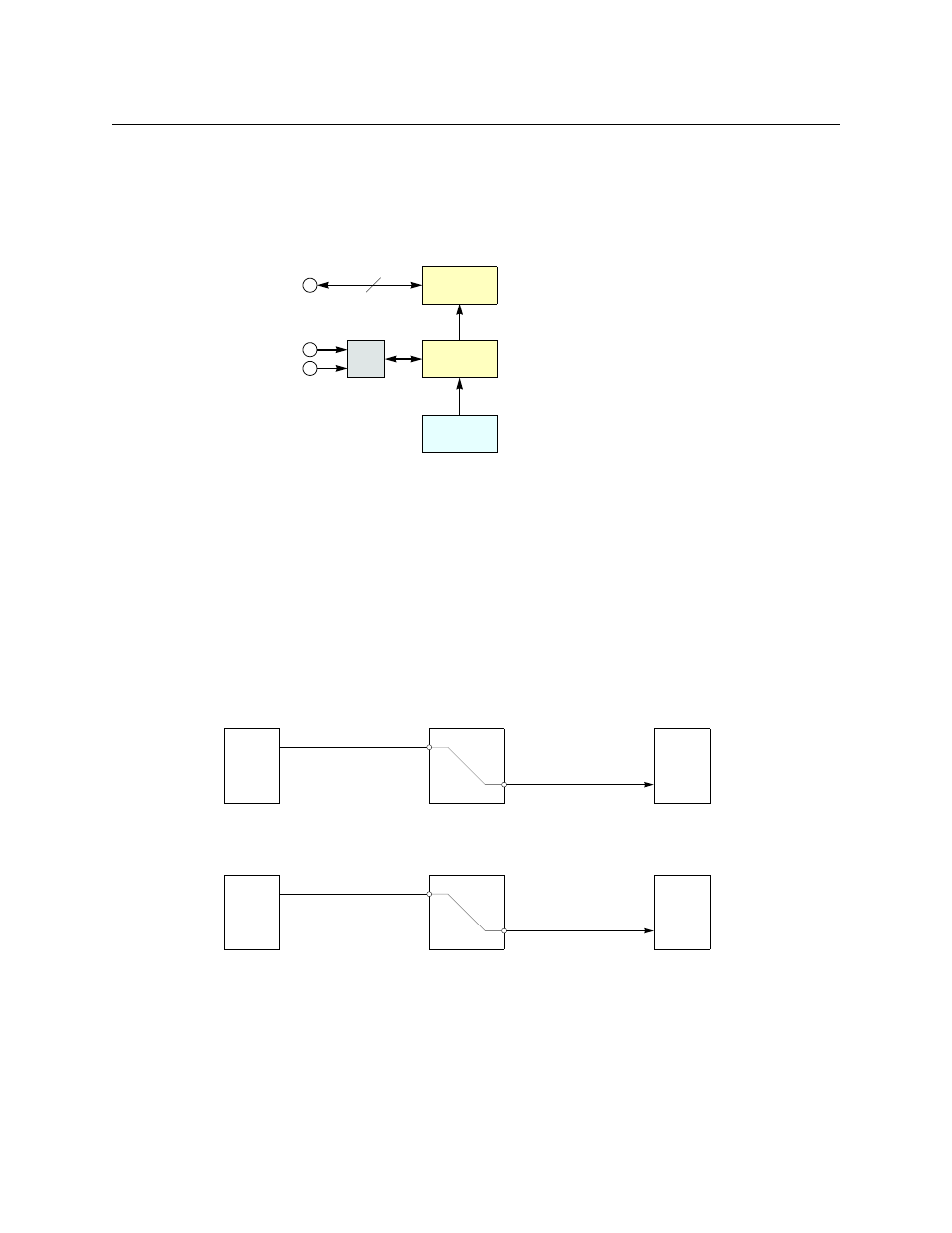Machine control routers – Grass Valley CR Series v.3.2 User Manual
Page 32

20
Introduction
Overview
Machine Control Routers
The machine control routers do not have X/Y crosspoints per se, but allow point-to-point
connections. One input may connect to (at most) one output.
The 1RU machine control router has 16 bidirectional serial ports (RJ-45). The 2RU machine
control router has 32. Figure 2-22 shows a simplified view of the machine control router:
Fig. 2-25: Block Diagram of the Machine Control Router
Machine routers channel serial data, typically commands in one direction and responses in the
other direction. Because the connections are bidirectional, a port is both an input and an
output.
The machine control routers are defined as “data reverse” routers. Each port can be configured
as dynamic, master, slave, controlling, or controlled. CRSC is a requirement for configuring the
ports.
The machine control routers support serial communication up to 1 Mb/s.
Background Information
A device can be considered a “controlled” device or a “controlling” device.
Above, the source device is a controlling device. A destination can also be the controlling
device:
A controlling device sends commands to a controlled device. The controlled device passes
responses (such as status) back to the controlling device. A source device can be a controlling
device or a controlled device. A destination device can be a controlling device or a controlled
device.
Some external devices must be placed in “remote” mode to work with a port router.
A controlling port is one connected to a controlling device.
A controlled port is one connected to a controlled device.
N
μP
Logic
Crosspoint
Switch
Control
Panel
Serial
Ethernet
(optional)
N = 16 or 32
Ports
SRC
DST
Compact Router
Controlling device
Controlled device
SRC
DST
Compact Router
Controlled device
Controlling device
